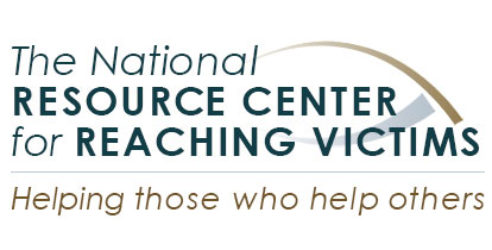Supporting Survivors with a History of Incarceration: Interview with Carmen Pacheco-Jones
For this interview, Kaitlin Kall of the Vera Institute of Justice and the National Resource Center for Reaching Victims spoke with Carmen Pacheco-Jones. Carmen is active in her community of Spokane, WA, where she advocates for criminal justice reform, racial equity, and has worked as a victim advocate. In this conversation, Carmen shares about her experiences as a formerly incarcerated survivor and the importance of centering the voices of those with lived experience.
You have worked as a victim advocate in your community and are active in efforts to reform your local justice system. What brought you to this work?
I came to this work out of a desire to support survivors. Personally, I am a survivor of violence and I understand the complexities of seeking justice. Often survivors are silenced, isolated, and made to feel as though they are complicit in their own victimization. There’s nothing quite like the internalized shame that comes with that. I wanted to be present for and give voice to survivors as they navigate the justice system and then to help them develop tools for resiliency as they seek to live the best versions of their lives. My victim advocacy complements my efforts to reform the criminal justice system because there is such a significant overlap when we look at who is victimized and those whom we call “offenders”.
From your personal experience and your work as an advocate and activist, how do you think incarceration and victimization are related?
Many of the individuals incarcerated today have been subjected to violence and abuse – whether it was during childhood or other complex trauma throughout their lives. As people with trauma transition to adulthood, they may become involved in the criminal justice system. For instance, some people are arrested and charged when they use force to protect themselves from an abuser. Others may develop mental health or addiction issues rooted in their complex trauma. These behavioral health issues are often criminalized, and these survivors may enter into the revolving door of the justice system.
Were you offered victim services or advocacy while you were incarcerated or after your release?
In my personal experience, I was never offered any support, services, or victim advocacy. In the case of my many incarcerations, I had often been recently victimized by my abuser. At one point, I was even forced to stay in jail until I agreed to testify against him. It was so significantly harmful to be made to feel like my life had no value then.
What type of assistance and support would have been most helpful to you and others in similar situations?
I think it would be valuable to have programs in jails that offer support to survivors. People should be asked, “Have ever you been a victim? Have you experienced trauma?” Not to ask just so a box can be checked off, but so survivors can be offered services. Even if someone is in jail just 24 hours, it’s an opportunity for a first point of contact and support. This may look like instituting an assessment process or having a peer support specialist in the facility that lets people know they have value, validates their experiences, and shares that there are pathways to recovery and resilience.
What do you think should be done to increase access to healing services for formerly incarcerated survivors?
Lack of trust can be a real barrier. We can look to examples from community-based organizations that are using peer models. Having peers who have had similar experiences helps to move away from the “us and them” dynamic of service provider and client where the support offered doesn’t always feel like it’s coming from an authentic place. As one positive example, I have worked with our local victim service agency providing psychoeducational support groups for survivors. Through this work I would go to homeless shelters, addiction treatment centers, and other places where I connected with people who were just returning to the community after incarceration and invited them to participate in this group for survivors. In this group we listened to each other’s trauma narratives and was a cohesive, supportive community formed from our shared experiences.
What do you think victim service providers and advocates can do to be more welcoming to survivors who have histories of incarceration?
Victim service agencies can feel unwelcoming at times to formerly incarcerated people. I’ve witnessed people in advocacy roles who have biases again formerly incarcerated people, people with mental health issues or disabilities, et cetera. This can lead to shaming and blaming instead of taking a step back and looking at the individual and what they went through. In these moments, the advocate is focusing on the behavior that was a result of the trauma, instead of looking at the root causation of that behavior. Deeming someone worthy or unworthy of services creates more harm. I think a lot of education is needed to resolve this, particularly training for staff conducted by formerly incarcerated survivors.
What is your vision for the future of the movements for increasing access to healing for victims and for criminal justice reform?
We’ve seen some progress in relation to the Prison Rape Elimination Act, but these movements need to be even broader – reaching more people and addressing other types of victimization. In these movements, directly-impacted people need to have their voices heard. Building trust is really important, as is letting directly-impacted individuals, in this case formerly incarcerated survivors, lead the way, because they are going to be able to identify solutions through their lived experience. Drawing upon the expertise of people with lived experience can help repair these systems that have done an injustice to people.
